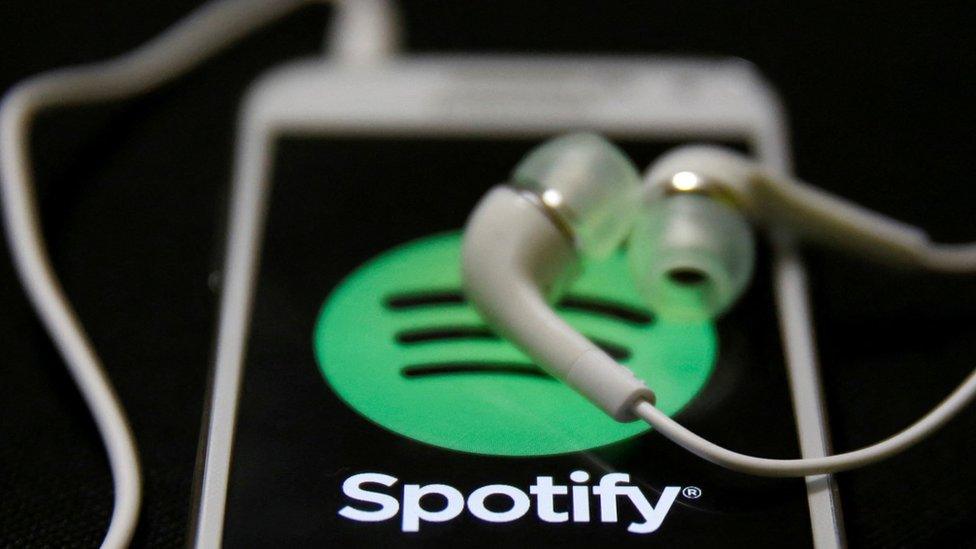Spotify follows Stormzy with youth club fund - but will it help the future of music?
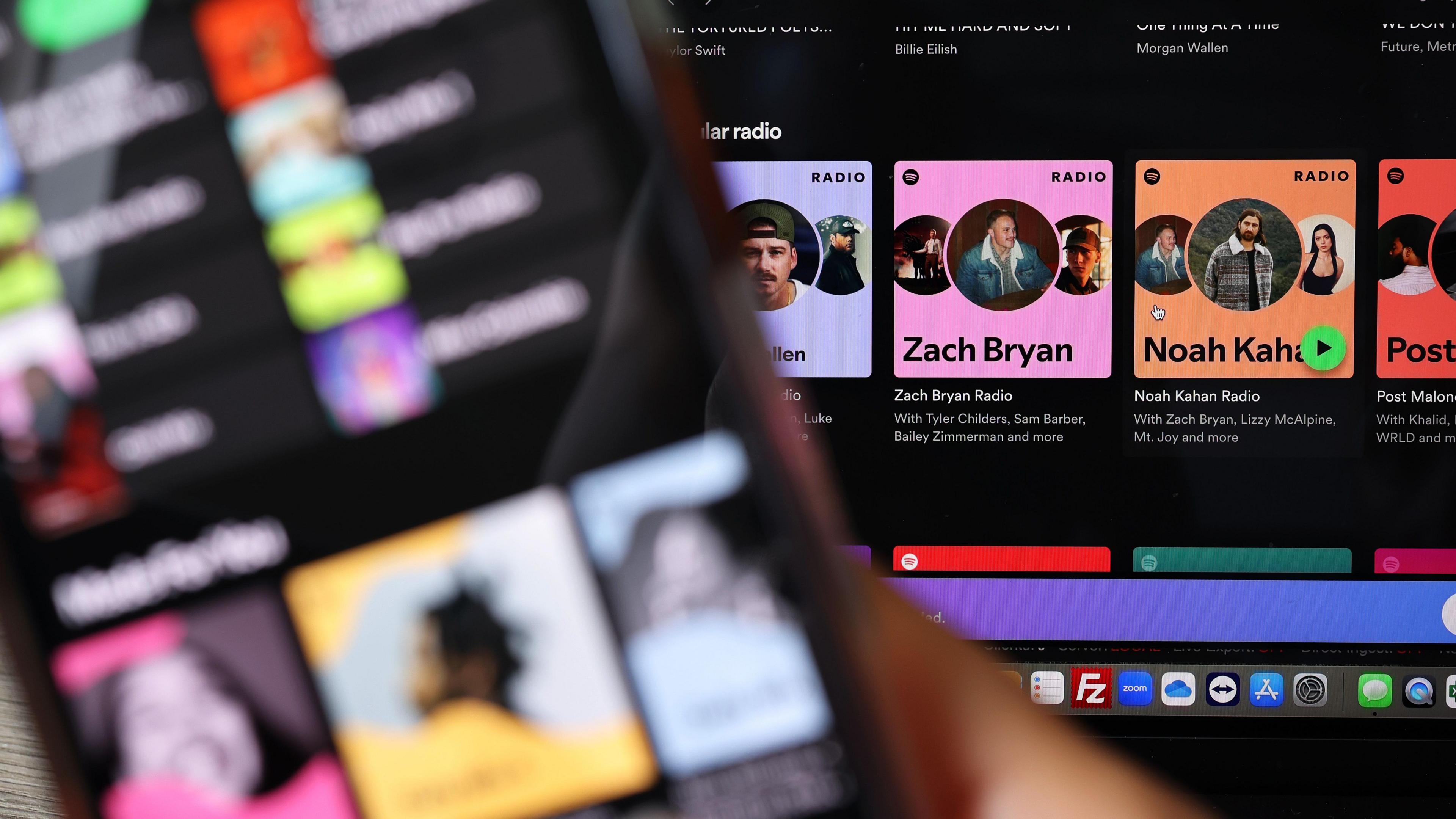
Streaming giant Spotify has pledged to support 15 UK youth clubs for a year
- Published
Support systems in place for young music talent is in "crisis", according to the boss of charity Youth Music.
A report from the charity paints a bleak picture of hundreds of closed youth centres, deteriorating mental health and a lack of access to music education.
"It is really urgent," Youth Music CEO Matt Griffiths tells BBC Newsbeat.
The charity's announced it's teaming up with streaming giant Spotify to fund 15 youth clubs over the next year to provide more opportunities and support to pursue music.
"We have a real opportunity not just to fund but to story tell," says Spotify's global head of social impact, Lauren Wurgraft.
Spotify has drawn criticism from artists over how much they get paid by the platform, and Youth Music says it had to consider that carefully when agreeing to the deal.
But it's been welcomed by south London rapper Still Shadey who tells Newsbeat music was a "saving grace" and a spark "for something positive" when he was growing up.
The MOBO award winner launched his own scheme to support young people in his area over the summer with funding from Arts Council England, Mirror Mirror.
"We have huge brands taking a step that will hopefully create a catalyst where other organisations can do the same," he says.
Spotify would not tell Newsbeat how much it's spending on the project with Youth Music but Matt says it's "over six figures".
The money will be used to protect youth clubs across the UK that are at risk of closure in a bid to get more young people into music.
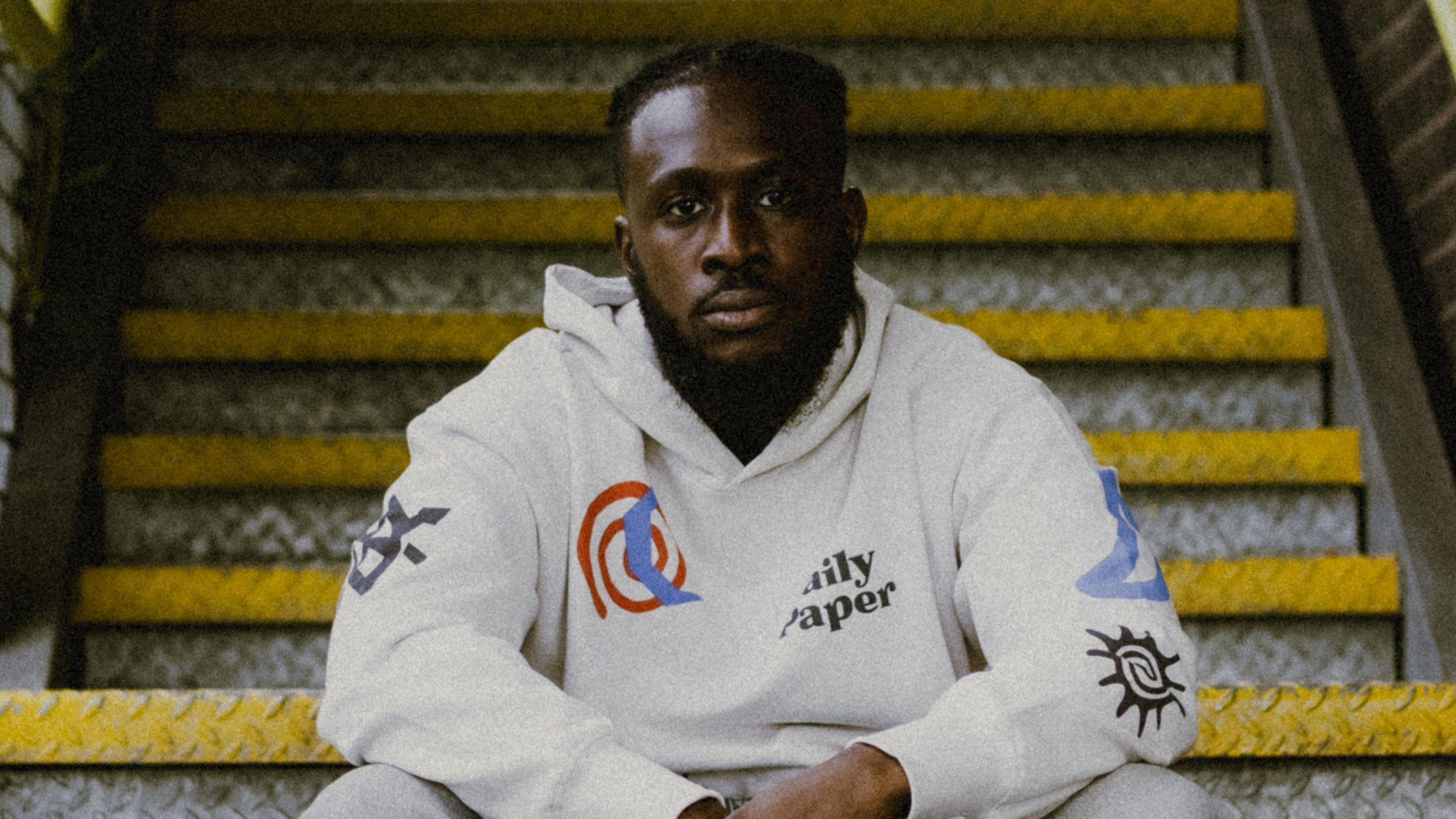
Shadey says before he found music, he ended up in spaces "I should not have been in"
It follows Youth Music's Sound of the Next Generation report, external, a survey the charity does every five years, with its latest one asking 2,100 young people about their lives and attitudes towards music.
"Top of the tree as their favourite thing in their lives is music," says Matt.
"But there was also a contrasting [finding] about access to music getting more limited, particularly access to making music and creating and composing your own music."
Girls and people from the North of England are particularly affected according to the report which highlights the cost of music education as a major block.
Meanwhile, research from the YMCA, external suggests that since 2011, about half of England's youth clubs have closed - rising to 60% in Wales.
The Local Government Association adds that, in that same time, government funding for youth clubs has declined by 73% in real terms.
Shadey says it was "the last phase of youth clubs" when he was growing up, describing the centres as little more than a warm space.
"We felt this was ending, things were closing down, derelict buildings, old PlayStation games, nothing being updated.
"That's not enough to keep a young person engaged. They want to learn and grow and be a part of something."
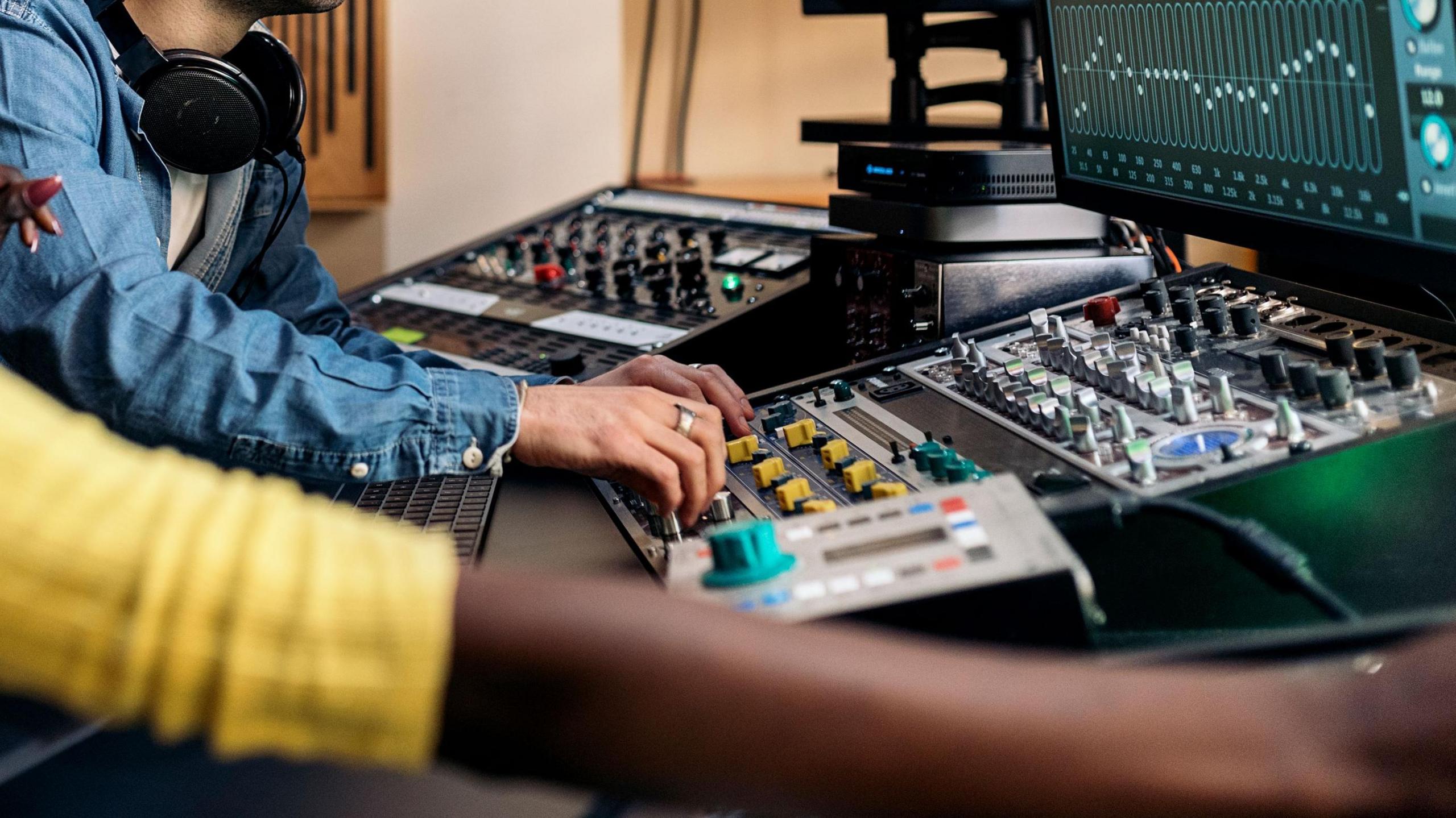
Shadey says music is a "powerful tool" to inspire young people
Lauren agrees that access is a "huge barrier".
"You can dream about being an artist but if you don't actually have a place where you can go and create and learn, then that really is never going to become a reality."
The 15 youth hubs which will be receiving the money haven't yet been decided - although according to Matt the funding could be allocated as soon as Christmas.
Youth Music says it will be targeting programmes and centres across the UK it already works with.
"It's very important these aren't just based in major cities because we know these spaces are important to youth all over the place," says Lauren.
For Shadey, he hopes projects like this will help with what he sees as the biggest problem facing young people: feeling "disconnected" from the areas where they live.
"Feeling like they don't belong," he says.
Spotify and monetising music
Youth Music's stated mission isn't just to help marginalised young people make music, it's also to help them monetise it.
And Spotify has a reputation - it says an unfair one - for not being very profitable for artists.
The platform pays royalties to copyright holders and while sometimes that's the artist, it often means publishers and labels.
Last year, 1,000 British artists were streamed enough to be paid at least £100,000 but on average they would only pocket 16% of what they earn from the app, all while Spotify reports record breaking billion dollar profits.
Spotify says rights holders take around 70% of revenue, and UK recording artists made £750 million in royalties from streaming last year, with the streamer having no say in how the money's split - that's an agreement between the artists and their management.
Copyright holders are also not paid at all if their song is streamed fewer than 1,000 times in a year.
Matt says squaring that with Youth Music's ethos of helping artists monetise their work was something the charity had to "think about".
"The debate about how artists, particularly emerging artists, make a living is very, very live," he says.
"You make a judgement call that in the end, this is going to make a difference for young people and their lives in music at this urgent time."
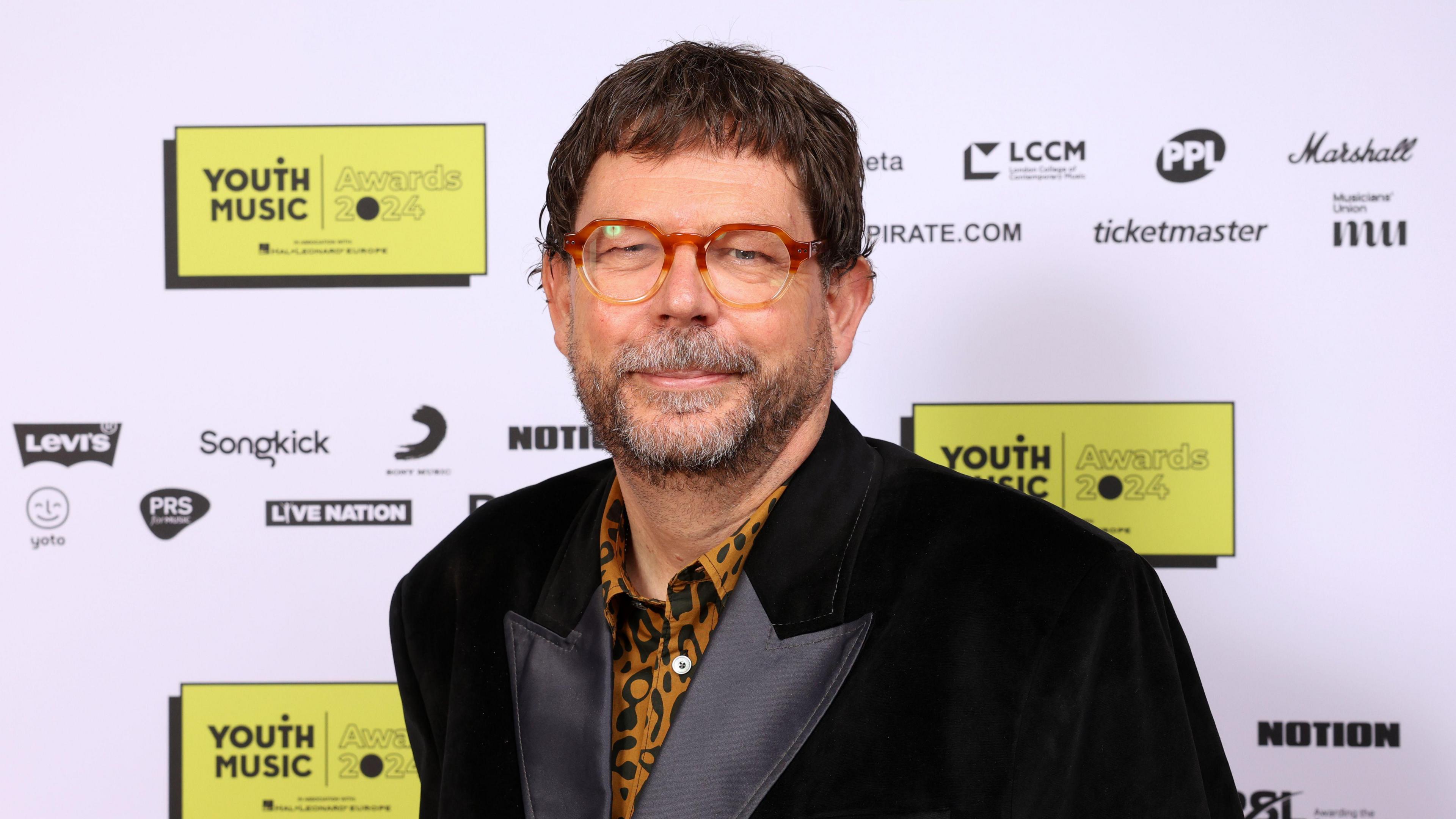
Matt says youth services are in "crisis" but Spotify's funding will make a real difference
Lauren acknowledges this scheme is more targeted at opening that initial door for artists of the future than sustaining a career in the industry.
"To basically provide opportunities for them to learn and grow and connect and be nurtured so they can actually even imagine becoming an artist and making a livelihood off it," she says.
Spotify isn't the only private company that's announced schemes aimed at filling the gap in youth services this year.
Working with BBC Children in Need, external and fronted by rapper AJ Tracey, McDonald's launched its Makin' It project, partnering restaurants with youth workers so they can host workshops and drop-in sessions.
And in south London, Stormzy set up a youth club in partnership with Adidas earlier this year, something Lauren says inspired Spotify.
"It's great these bigger companies are coming in and investing in those communities as part of their corporate social responsibility," says Shadey.
"But the depth is only gonna be seen if they partner with community leaders and grassroots organisations so it's authentic."
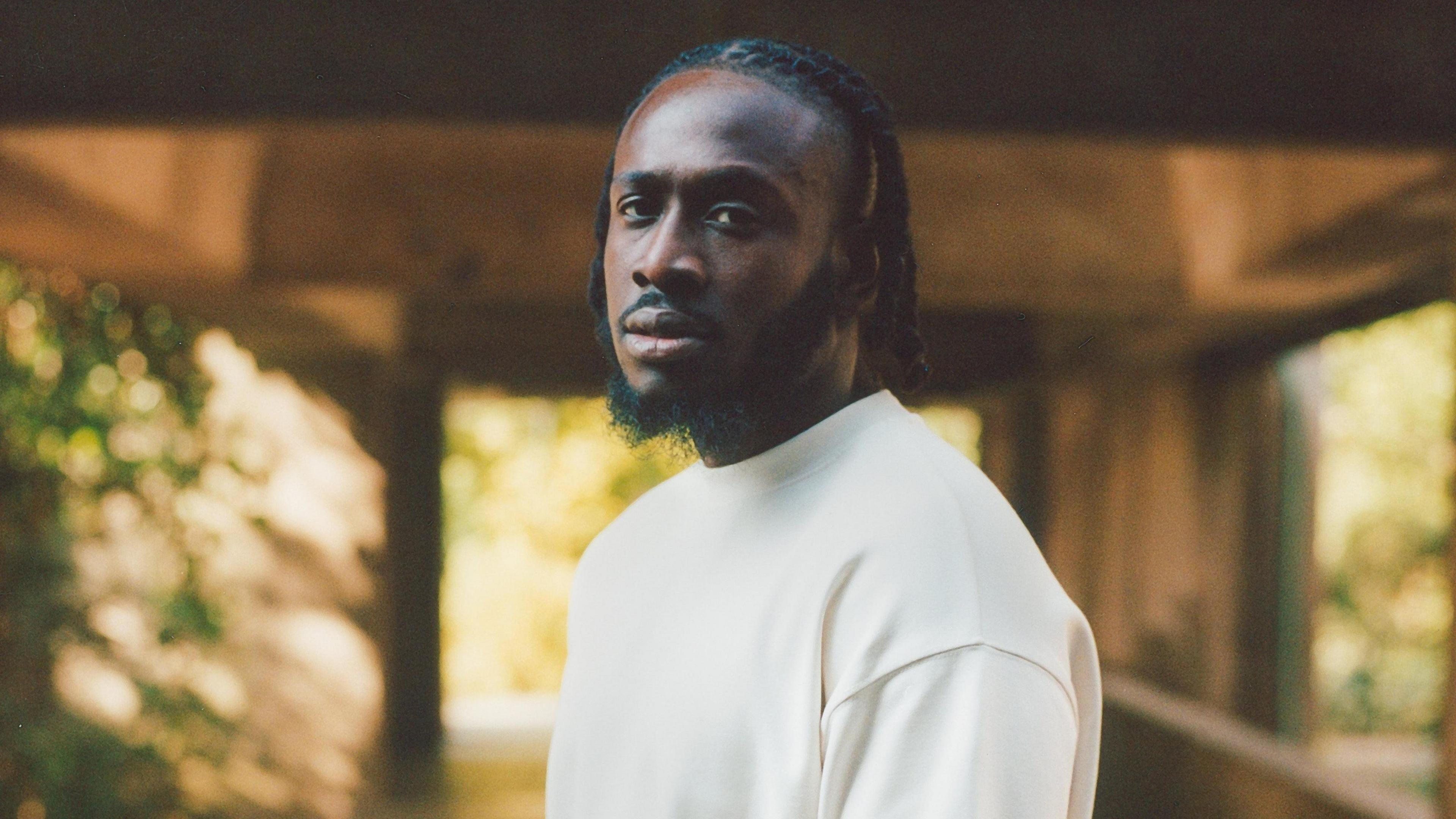
Still Shadey won a MOBO award in 2022 and has been nominated again for 2025
Stormzy's Merky FC is a state-of-the-art facility with a full-size football pitch, recording studio and gaming centre and the rapper told the BBC he'd be a regular visitor, providing songwriting masterclasses and gaming.
Spotify on the other hand will be taking a more hands-off approach and won't be involved in the Youth Music scheme beyond the funding they've pledged.
But Shadey thinks the power of brand alone will draw people in.
His Mirror Mirror project supported 60 young people - all of whom had to apply - and provided trips to 1Xtra and Abbey Road studios and the Houses of Parliament to give them a taste of the music industry.
"I think youth clubs today need to create that same model where people know it's a privilege, they know it's an opportunity."
While this project has some government support, Matt says the charity would prefer not to rely so much on private investment.
"Short term funding, it's great at the time but you're always planning for the next days without getting that longer term certainty," he says.
"Government support is vital... It's always a combination, but you do have to see the government really shouting loudly, not just about music, but about young people."

- Published13 September 2024
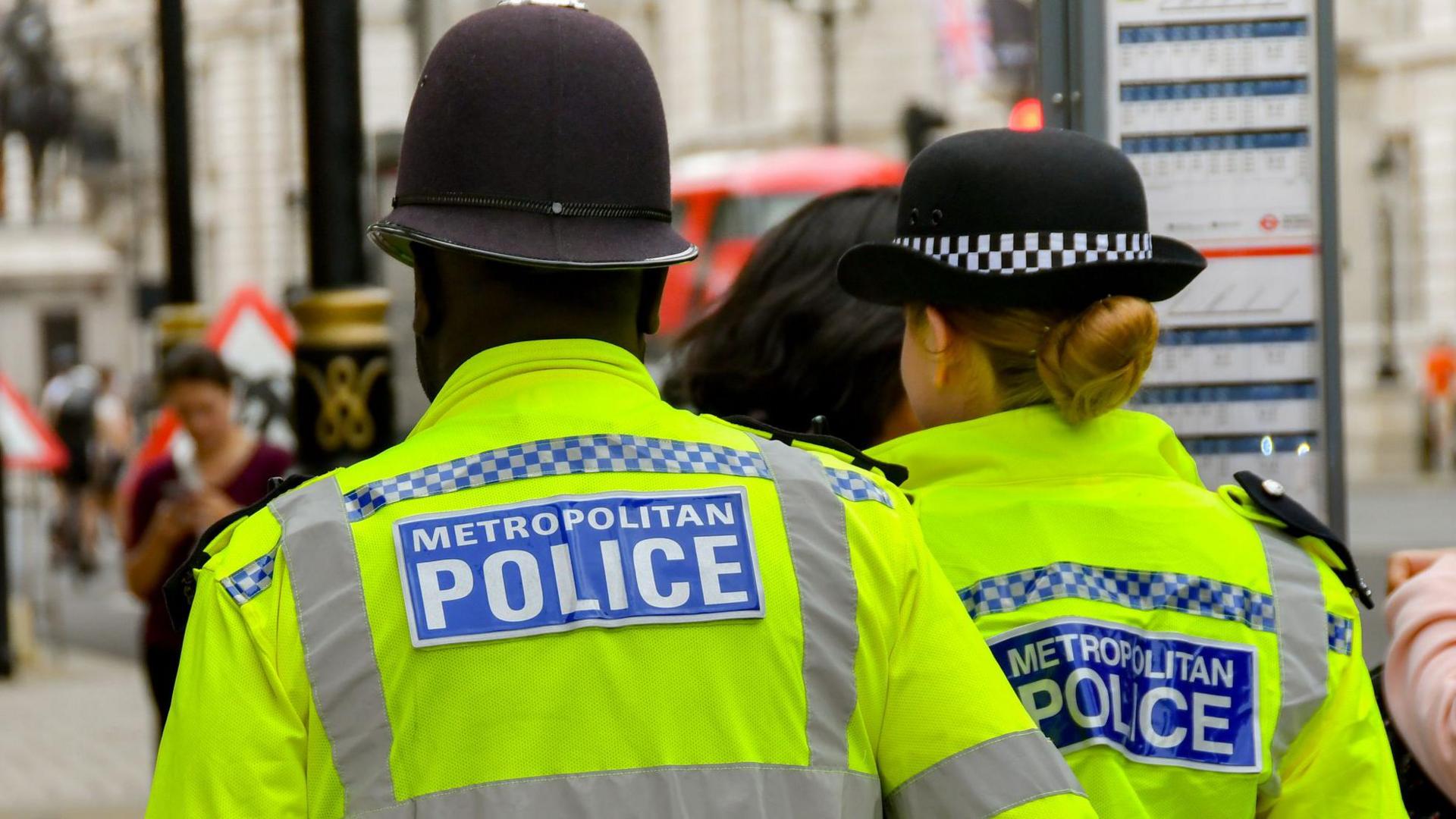
- Published9 May 2024
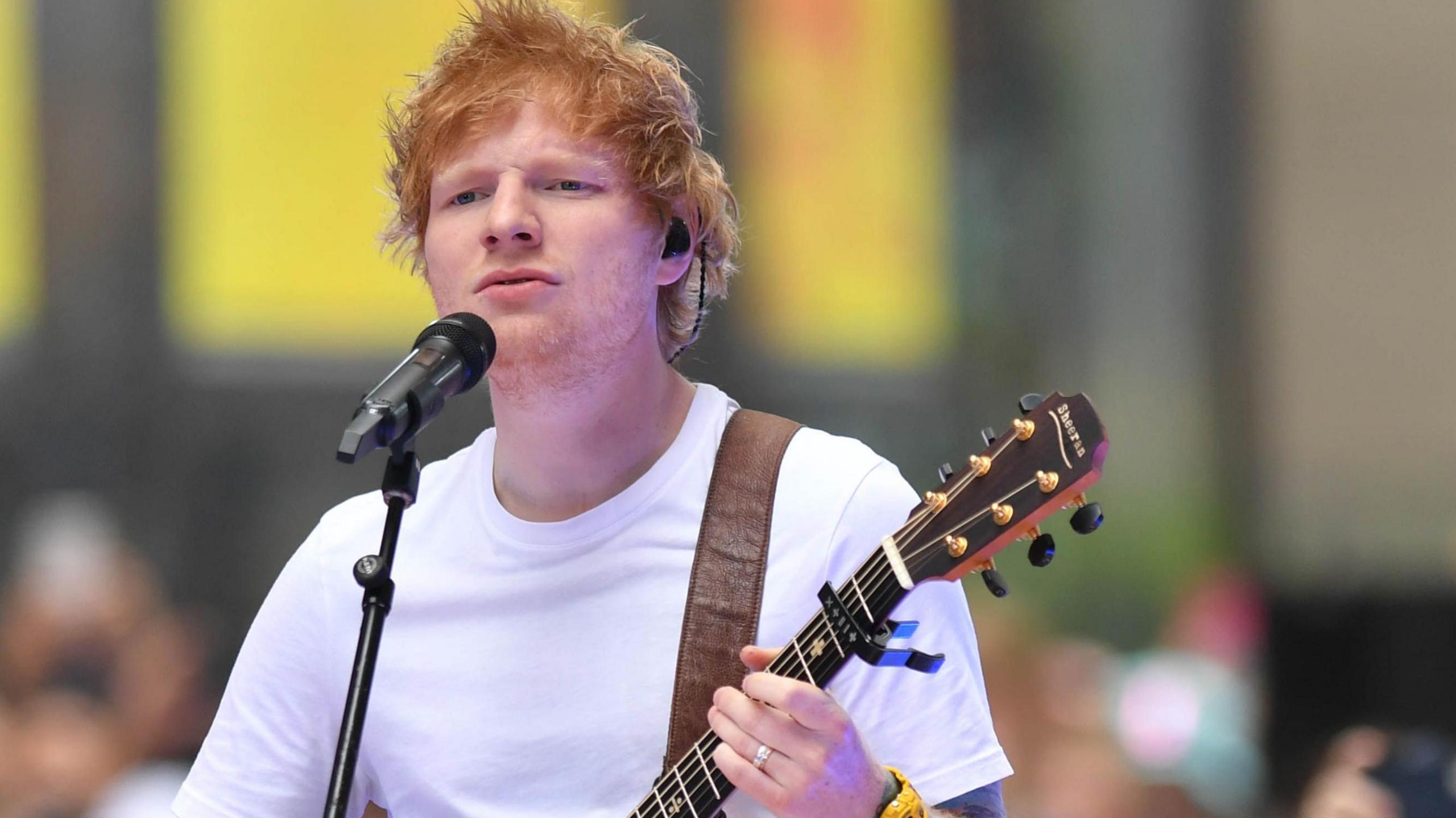
- Published24 April 2024
